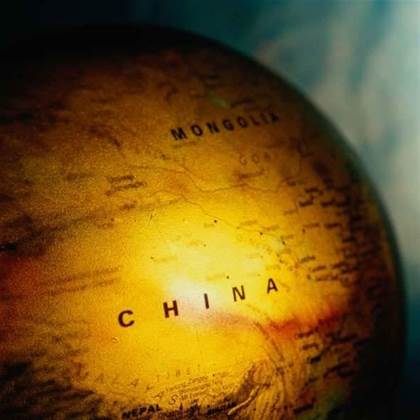While no direct ties between Huawei and the Chinese military and Communist Party have ever been established beyond CEO Ren Zhengfei's past ties to both, the fast-growing telco supplier's ownership structure is still fascinating, strange and tricky for Western observers to understand.

Huawei was founded in 1988 but remains a private company to this day, despite revenues of A$26.8 billion last year and a compound annual growth rate of 33 percent.
Huawei staff are evasive when asked why the company hasn't listed.
"We will choose the most suitable model for Huawei at varied developmental stages," a company spokesman told iTnews.
One of China's richest men - with an estimated net worth of US$450 million - CEO Ren Zhengfei is content with a mere 1.42 percent of shares in Huawei.
The rest - some 98.56 per cent - is owned by employees, according to the company.
However, this arrangement is not as straightforward as it may sound. The employee shareholding scheme is implemented through the Union of Shenzhen Huawei Investment Holdings Co Ltd.
To further complicate matters, Huawei Technologies Co Ltd itself is a wholly-owned subsidiary of Shenzhen Huawei Investment & Holding Co Ltd.
According to a company spokesman, Huawei Holding is solely owned by employees of Huawei, without any third parties (including government bodies) holding any of its shares.
In other words, Huawei employees own both the company they work for, and the company that owns Huawei itself.
This convoluted ownership by the employees is controlled by the company's management.
Employees cannot buy shares, but are instead allocated shares annually on the basis of work performance, duties and capabilities for the position and on future development potential.
Huawei would not disclose how many shares any single employee can own. Dividends, however, are paid to employees, to complement Huawei's incentive scheme that includes performance bonuses and annual salary reviews.
The shares themselves are known by the Huawei internal term "Virtual Restricted Shares", but according the company spokesman, this is "just a technical name" for otherwise "normal" shares.
Only Chinese employees are allocated shares in Huawei.
"Huawei is headquartered in China and due to prevailing Chinese legal issues, overseas employees cannot, unfortunately, own shares," the spokesman said.
Presently, Huawei says that out of some 95,000 employees, 61,457 hold shares in the company.
Employees allocated shares have to return these when they leave Huawei's employ, according to the spokesman. The shares are bought back by the company at their current value, the company spokesman said, but he wasn't prepared to reveal how much each share is valued at currently.
"The stock ownership plan will help us attract and retain talent, and keeps employee benefits in line with company performance," the spokesman said.
The Union of the Shenzhen Huawei Investment and Holding Company is not a trade union, but a shareholders' one, according to the spokesman, and it appears to form the cornerstone of Huawei corporate governance.
This union "is the highest authority of the company".
A "small committee" of 33 union members are elected by other shareholders employed by Huawei to make decisions.
In turn, the committee elects nine candidates to the Huawei board that is appointed at the general annual shareholder meeting.
Huawei won't disclose who runs the Union of SHIH or who sits on the committee, but says it would consider establishing an independent board of directors "when the condition is permitting".
Judging from the present list of board members, they are highly ranked executives rather than shop floor employees. Apart from CEO Ren and chairwoman Sun Yafang, the other board members currently include:
- Ms Ji Ping, Vice President
- Mr Guo Ping, Executive Vice President
- Mr Xu Wen Wei, Senior Vice President
- Mr Hu Hou Kun, president of Global Strategy and Marketing
- Mr Fei Min, President of Products and Solutions
- Mr Hong Tian Feng, President of Operation and Delivery
- Mr Xu Zhi Jun, Chief Marketing Officer
Huawei's ownership arrangements are "completely opaque" says David M Webb, an independent commentator on corporate and economic governance, based in Hong Kong.
"My guess is that the candidates for election are tightly controlled - it's not like an employee can just run for election with the support of his colleagues."
Webb said it is not clear there is any capital gains earned when an employee leaves Huawei.
He suspects that the shares are simply a profit-sharing mechanism. Shares in the bonus pool or "dividends" are allocated and withdrawn at management discretion, and probably do not carry any equity value, he said.
According to Webb, the "employee-owned" structure appears to be an attempt at distancing Huawei from its PLA (People's Liberation Army) roots.
"Huawei does business in a sensitive sector because its equipment is at the heart of telecommunications networks," Webb said.
"It is easy for opponents to suggest that Huawei, the PLA, or the Chinese government might be able to intercept communications or remotely cripple networks, regardless of it being true or not," says Webb.
"Unless and until Huawei becomes a stand-alone widely held listed company with employees free to trade their shares and without a controlling shareholder, these suspicions and allegations will likely continue," he said.





_(23).jpg&h=140&w=231&c=1&s=0)






 iTnews Executive Retreat - Security Leaders Edition
iTnews Executive Retreat - Security Leaders Edition
 iTnews Cloud Covered Breakfast Summit
iTnews Cloud Covered Breakfast Summit
 Melbourne Cloud & Datacenter Convention 2026
Melbourne Cloud & Datacenter Convention 2026
 The 2026 iAwards
The 2026 iAwards











_(1).jpg&h=140&w=231&c=1&s=0)
